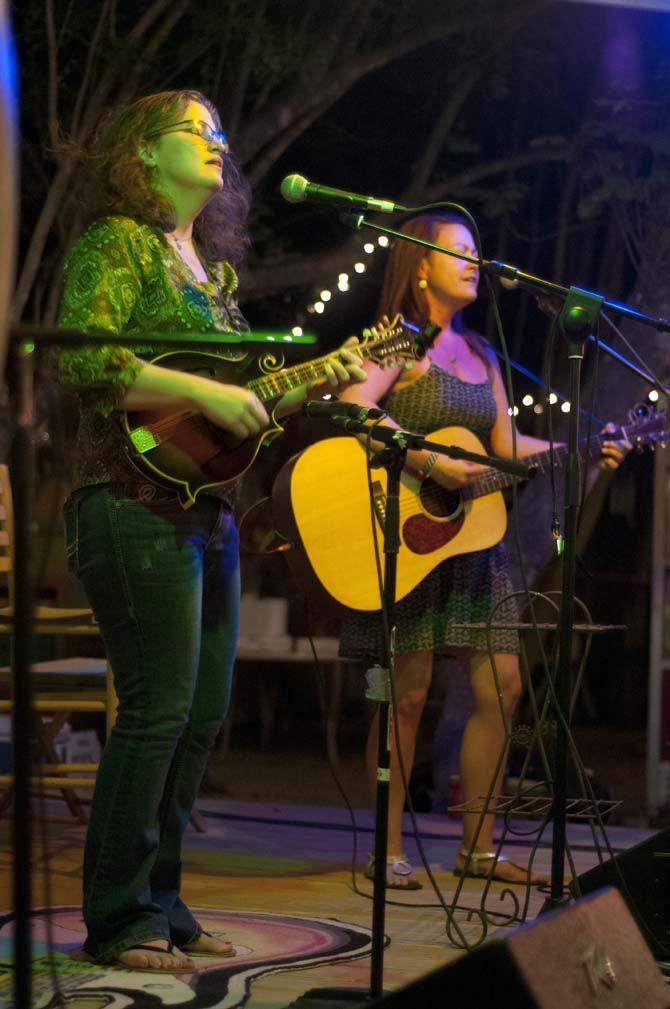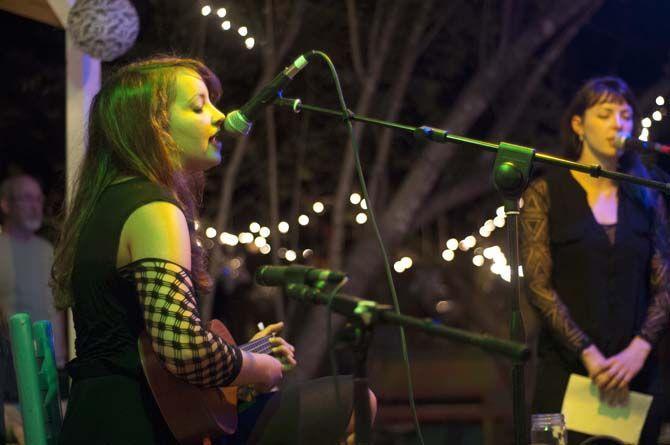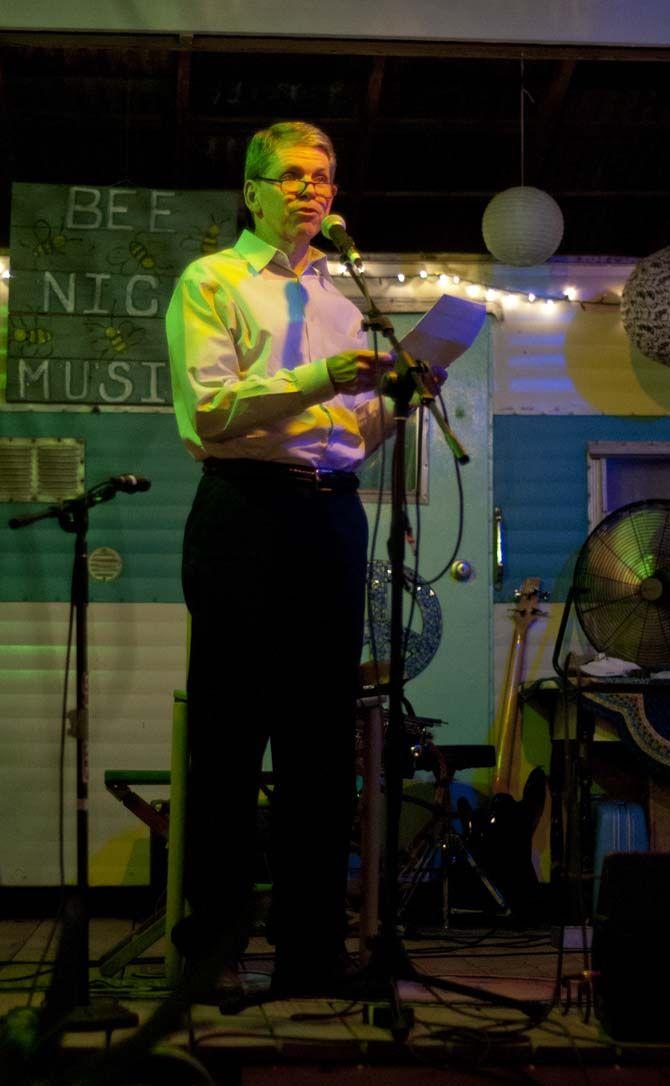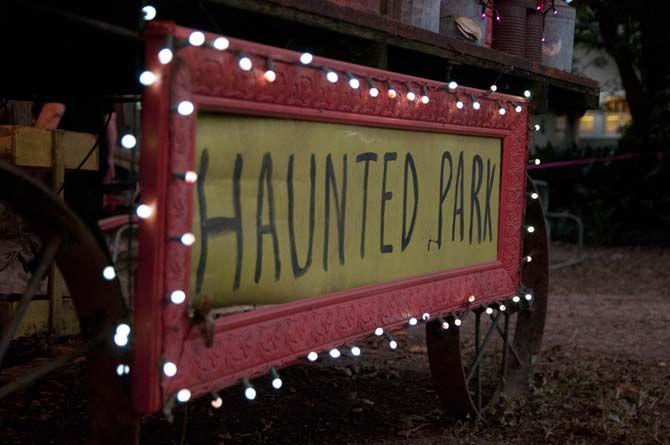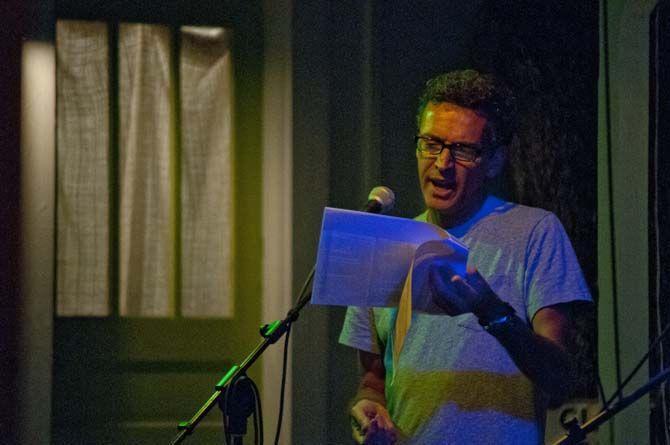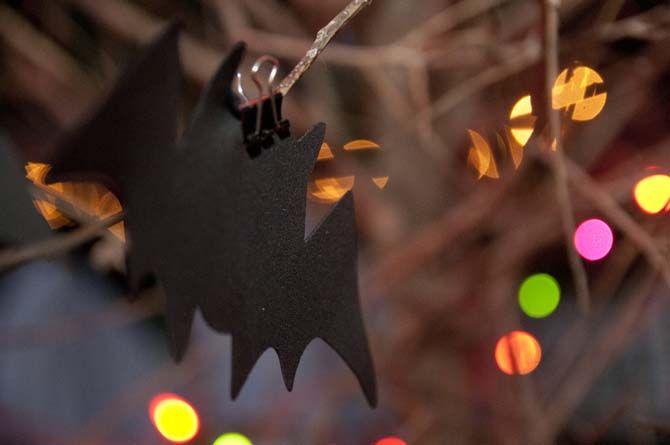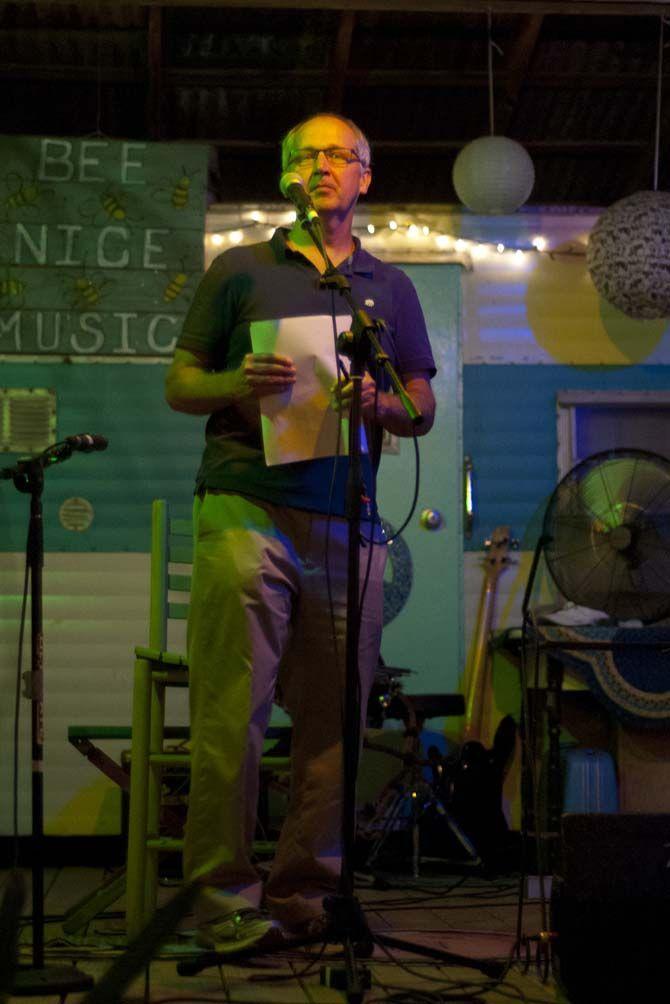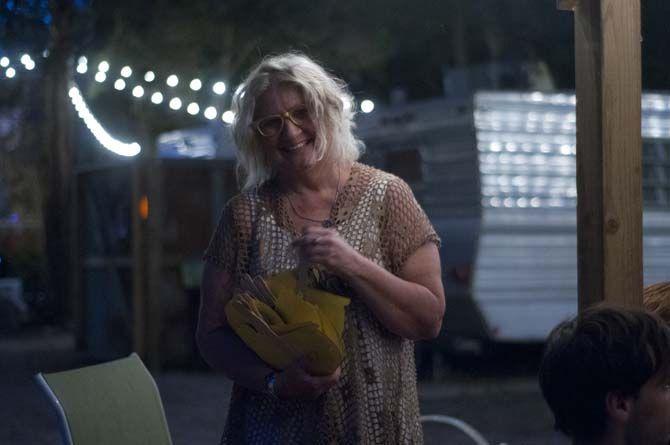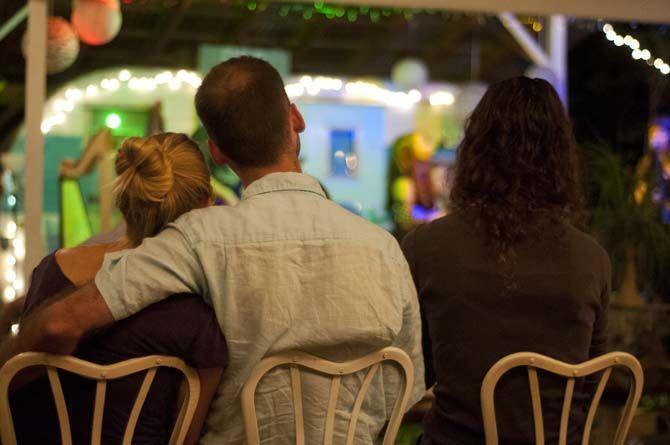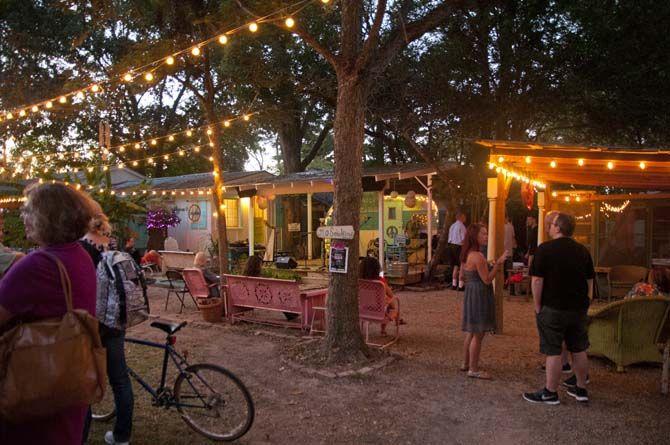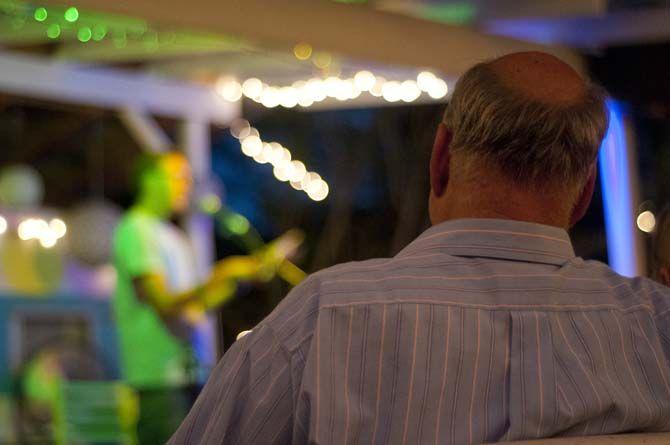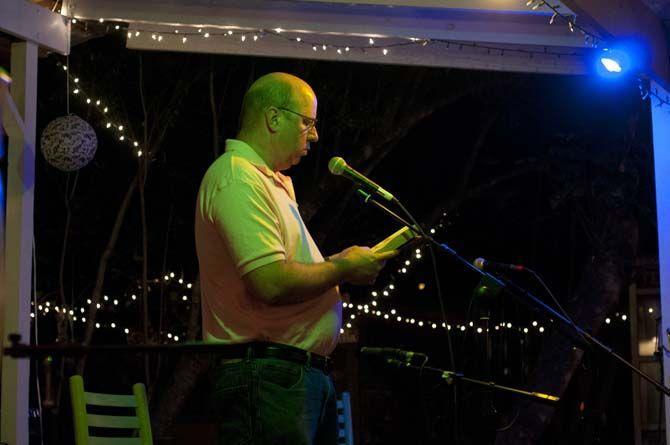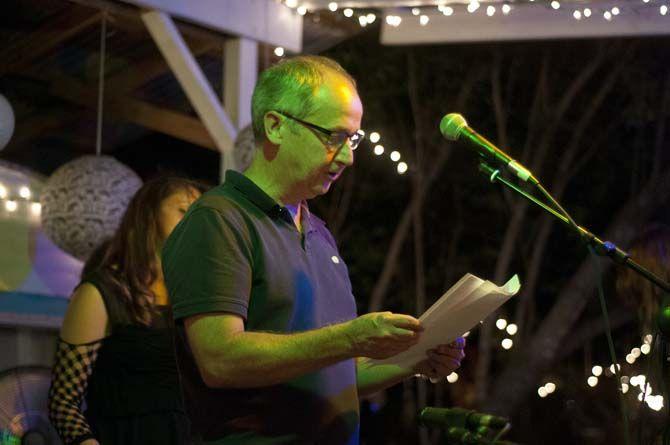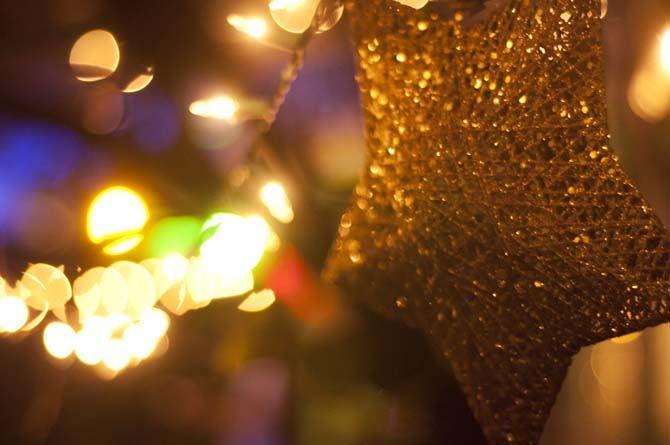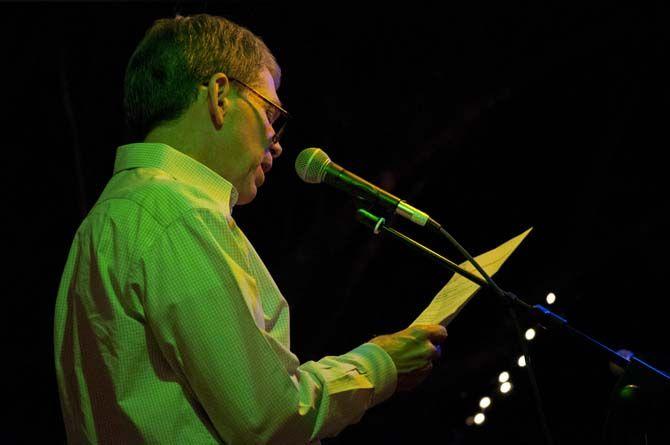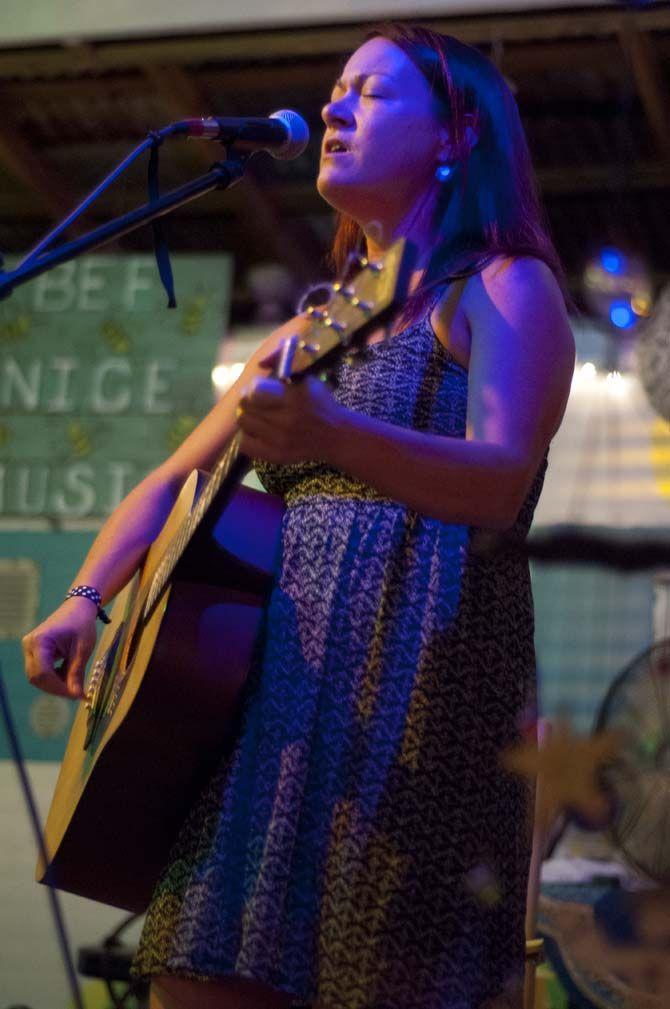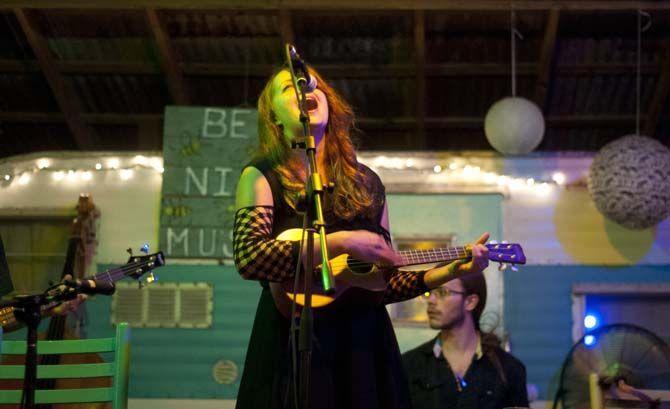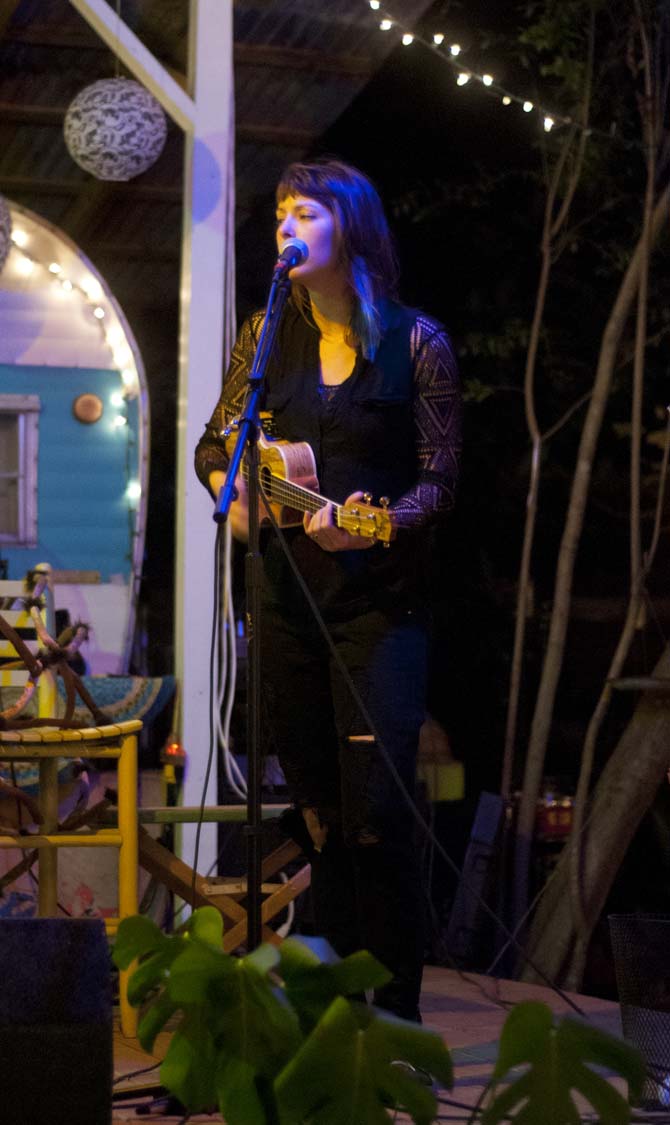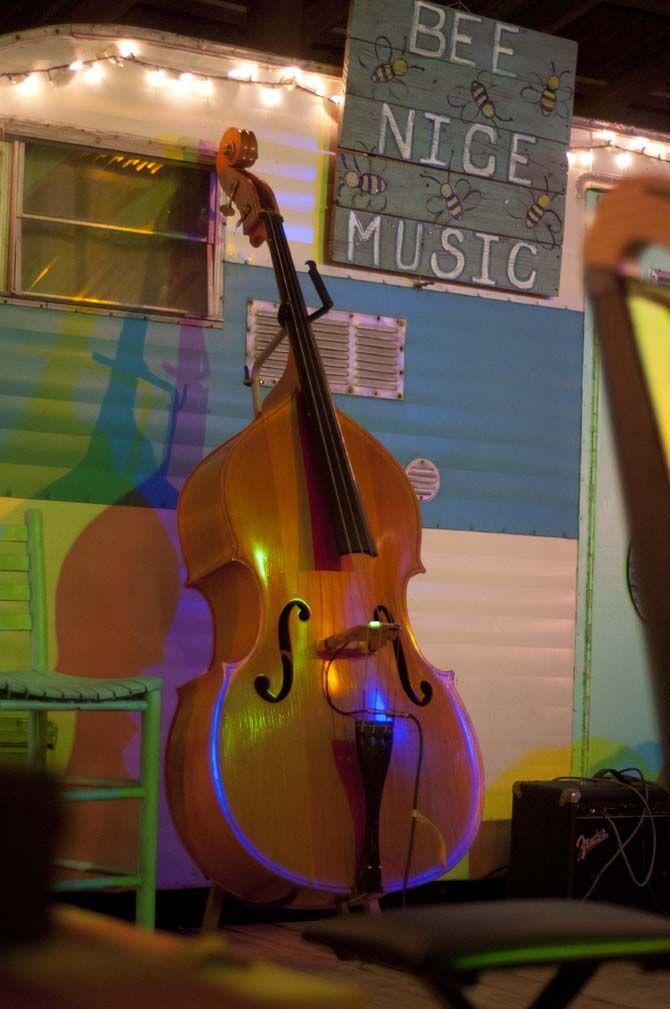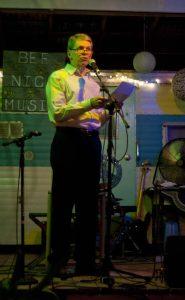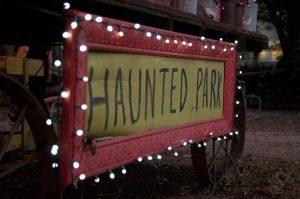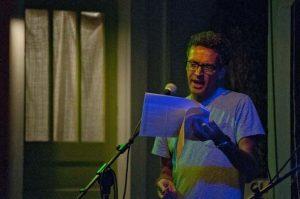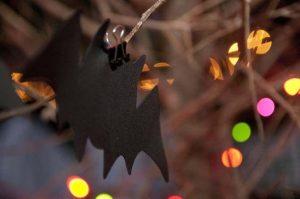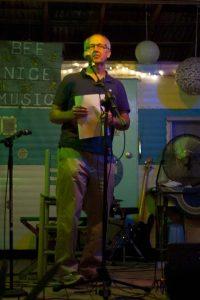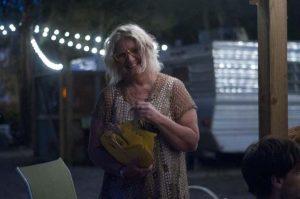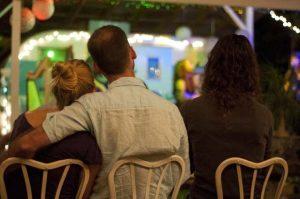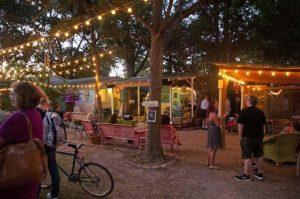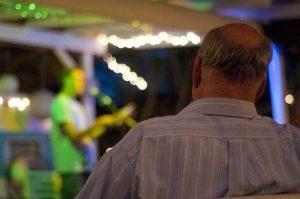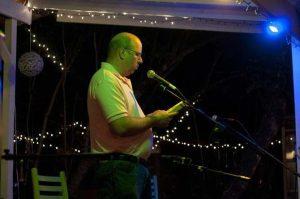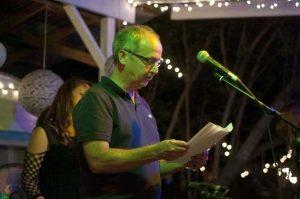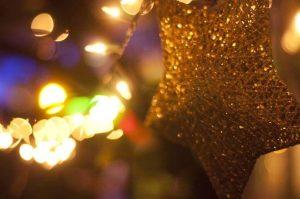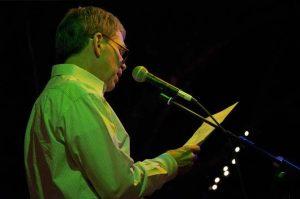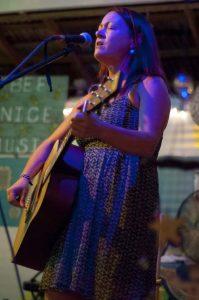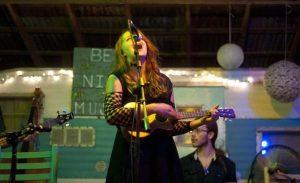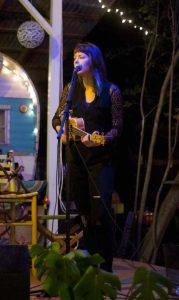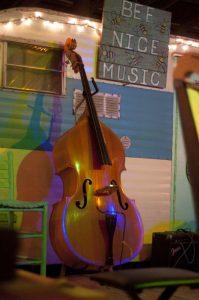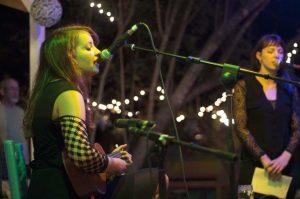A host of local educators and artists graced a backyard stage under Christmas lights in mid-city Friday to read, recite and perform banned and threatened works of art as part of the American Civil Liberties Union-sponsored “Freedom of Expression Festival.”
The ACLU of Louisiana organized the event, which took place at David Mooney and Penni Guidry’s “Bee Nice Concert Series,” a backyard lot-turned outdoor venue in the middle of a Capital Heights Avenue neighborhood.
ACLU representative Stephen Dixon said the venue, which featured painted signs, colorful trailers and a “no drama” flag, embodied the spirit of freedom of expression, and Mooney and Guidry immediately agreed to the event.
Mass communication professor Robert Mann read aloud a column he wrote for the NOLA.com | The Times-Picayune in 2013 titled “Gov. Jindal gets what he wants from the LSU Board of Supervisors,” asserting its relevance in 2015.
Mann began the column with, “Pity the hapless members of the LSU Board of Supervisors. They are esteemed members of their professions and respected in their communities. But to serve on this board, Gov. Bobby Jindal apparently demanded they surrender their independence and self-respect.”
Mann said he often criticizes the governor and LSU administration in his columns but acknowledged his tenure as a professor allows him to do so without being professionally threatened.
Dixon praised Mann for being “courageous” and “unafraid,” applauding Mann’s blog, “Something Like the Truth,” in which Mann frequently writes about politics and LSU administrators.
Dixon, who acted as the emcee and event organizer, said he hoped to spark conversations about the value of freedom of expression.
“I hope that each of these performances, readings or recitations show you that, ‘Wow, that was not something we needed to be protected from,’ and each of them in different ways,” Dixon said.
The event featured eight performers, including a University Laboratory School physics teacher, a lawyer, a poet and a half-dozen musicians, among others.
Authors ranged from Franz Kafka to Darwin, while the works read tackled questions of humanity, politics and the War on Drugs.
Former LSU mass communication professor Danny Heitman, who contributed columns to The Wall Street Journal and The New York Times and currently writes for The Advocate, recited part of “To Kill a Mockingbird,” the 1960 novel by Harper Lee.
Freedom of expression is often thought about abstractly, Heitman said, but it has a fundamental effect on everyone.
“It’s very much about what makes us human,” he said. “When that is under threat, it’s not just our politics that are at risk, but our humanity.”
ULS teacher Steven Babcock read works by Mark Twain, Walt Whitman and Charles Darwin.
Babcock, who was described as a “fierce poet” by Dixon, said he would read from books by “150-year-old dead, white guys” because they raised essential questions about the environment, brotherhood and justice.
He said an insightful conversation he had with his son revealed much about freedom of expression. His son asked why anyone would ban books and then answered himself, “Probably because they are afraid.”
ACLU event celebrates freedom of expression, brings banned content to stage
By Sam Karlin
October 18, 2015
The Wilder Janes perform at the ACLU Freedom of Expression event on Friday Oct. 16, 2015, at the Be Nice Concert Ave. on Capitol Heights in Baton Rouge.


